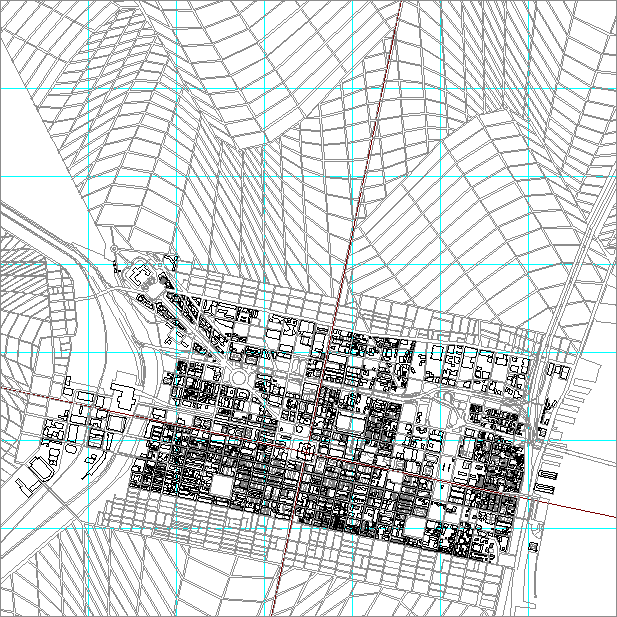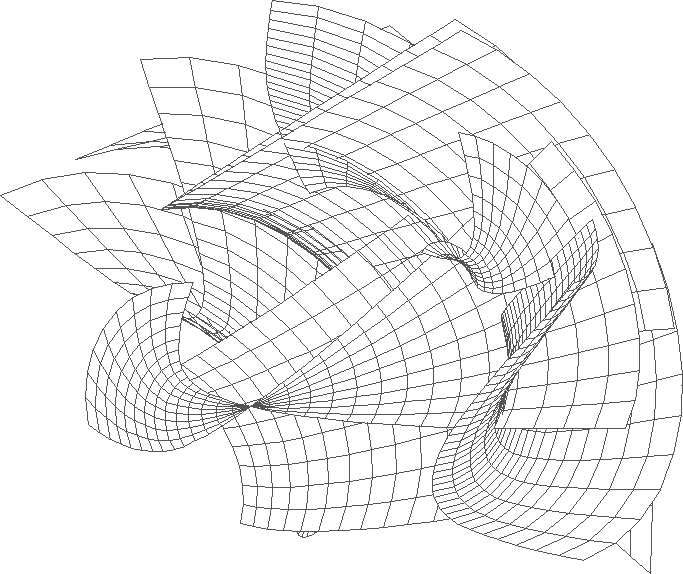2012.05.23 20:18
the ethics of parametricism/emergent architectural thought and reification
white fang, I made no superficial judgments, nor declared anything as bad. What I did was ask questions. Out of all this my main question is:
Is there in fact a parametric process/design that is able to imagine itself differently than how it is programmed to imagine itself?
I, Stephen Lauf, genuinely would like to know whether such a thing exists or not. Can anyone provide an answer?
regarding Waving City...

Ichnographia Quondam, preliminary study, 2000.09.17
| |
2012.05.23 18:50
the ethics of parametricism/emergent architectural thought and reification
white fang, if you look back at all your comments, you're actually not saying anything substantial. I asked for three examples of how biomimtics is going to make the library a productive piece of environmental technology. I did not ask for 50 years of history. If you don't answer, I'll just believe that you in fact can't answer. You and noubtree are good at being dismissive, but not at all good at saying anything of substance.
And as to 'self-awareness', is there in fact a parametric process/design that is able to imagine itself differently than how it is programmed to imagine itself?
2012.05.23 17:02
the ethics of parametricism/emergent architectural thought and reification
white fang, yes I do want a library that is a productive piece of environmental technology, so give me at least three examples of how biomimtics is going to make the library a productive piece of environmental technology.
Otherwise, if I am not interested in the library being a productive piece of environmental technology, does that mean I won't be needing bomimetics?
And again, can you tell me about self-awareness within the process/design of parametrics?
2012.05.23 15:38
the ethics of parametricism/emergent architectural thought and reification
white fang, asking as a potential client for your architectural services:
What does your perspective on biomimetics revolve around? And how does that relate to this library I want to build?
Also, tell me about self-awareness in parametrics.
2012.05.23 09:58
the ethics of parametricism/emergent architectural thought and reification

And adding to the 'unexpected' thinking, imagine the image above as the 2-dimentional 'grid' plan of a city. It's like actually stepping out of the mimicry.
What I mean here by "actually stepping out of the mimicry" is that even the image above is a form of mimicry in that it really isn't a bunch of 3-dimensional curved surfaces in space, rather a coherent group of lines that when perceived cause our brain to imagine a bunch of 3-dimensional curved surfaces in space. To see these lines as a grid plan of a city, however, you really have to adjust your imagination. And I'll say that it is within that act of "adjusting the imagination" where the crux of design happens.
I also asked, "Does it still just boil down to a sophisticated play of/with geometry?" I'd say that for the most part yes, in that the base is (many) points in space. Algorithms are used to define the surfaces between the (many) points in space. Super-fast computation puts all this sophisticated geometry in flux (and potential manufacture). Script writing, or lets say the process, is here a continual "adjusting of the imagination"--literally continually adjusting the image--and that is why is it now easy to believe that process is indeed also design.
I now wonder if the process/design of parametrics is better described as 'artificial design' because it still lacks the ability to imagine itself differently than how it is programmed to imagine itself.
tammuz, as to your other question:
do you think that the reaction against a referential-discursive practice of architecture (and specifically against eisenman) resulted in a pathology founded on the denial of the role of the reference within architecture that we witness within the rhetoric of emergent parametricism, and more widely, within the current strains of materialist architectural thought?
I'd feel more comfortable answering if you clarified or referenced it with some examples, and maybe even adjusted it to what I just wrote above. If I understand your question correctly so far, it hinges on the "pathology founded on the denial of the role of the reference" and it looks like I might think of that more in terms of 'the role of imagination' rather than the adherence to one design ideology or another.
|